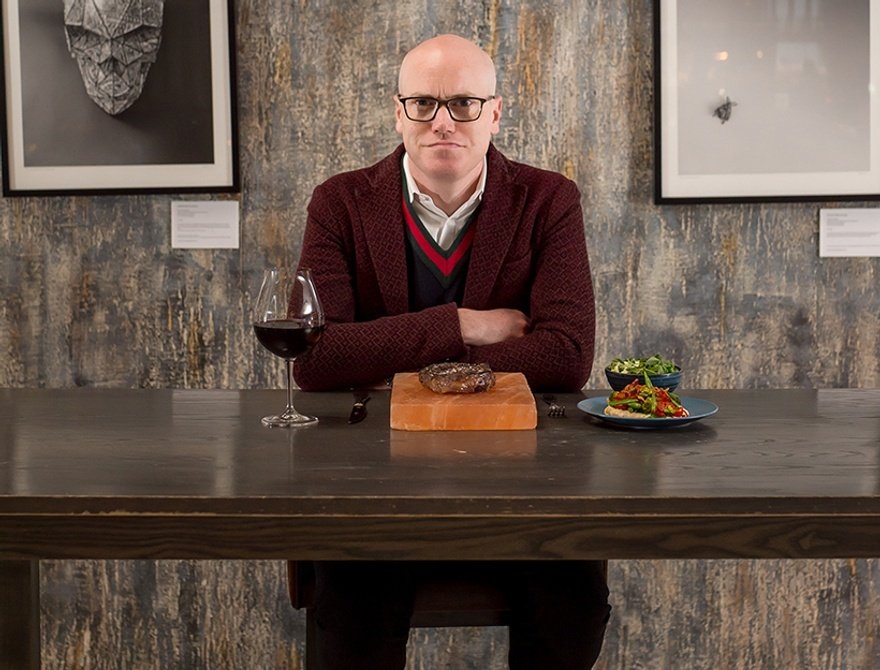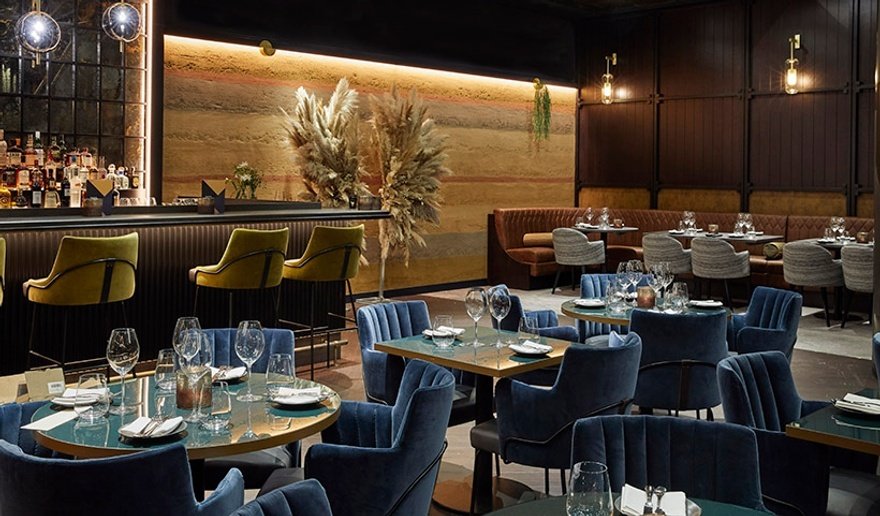Martin Williams, chief executive of Gaucho and M Restaurants, is tackling methane production through the Sustainable Steak Movement, a way of raising cattle that reduces their environmental impact. Will Hawkes finds out more.
On the face of it, the ‘Sustainable Steak Movement' seems somewhat of an oxymoron, with beef often being seen as the villain in the fight against climate change. But Martin Williams, chief executive of Gaucho and M Restaurants, is keen to change this perception, creating a organisation designed to promote carbon-neutral beef.
The Sustainable Steak Movement will enlist restaurants in a campaign to combat the environmental impact of beef production, according to Williams, who says Buenos Aires Argentine Steakhouse, which has five restaurants in London and the South East, has already agreed to join.
"We're looking for other partners to become founding members and we'll be reaching out to them this month," he says.
This is the latest and boldest step in Williams' campaign to ensure that Gaucho and M's beef becomes carbon-neutral, an idea first announced in the autumn of 2019 and subsequently delayed by the pandemic. At a dinner at Gaucho's Tower Bridge restaurant, Williams said that plans were progressing to ensure that the group's restaurants in Charlotte Street and Leeds, and two new restaurants outside London (unnamed, as the contracts are yet to be finalised), plus one of the two M restaurants, were fully carbon-neutral next year.
Gaucho's 13 other restaurants will offer at least one carbon-neutral steak for now, but Williams says they will be 100% carbon-neutral on steak and wine by 2025 and net zero by 2030.
Green shoots
Gaucho, which serves around 22,000kg of steak a month across its restaurants, will offset the ecological damage caused by its cattle by planting trees in Peru: around 15,000 every year for each restaurant, Williams says. There are also plans to invest in geothermal power, he adds, while the company "is looking at [cattle] feed" to see if that can help reduce the amount of methane produced.
Williams says the group is also carrying out a full calculation of the environmental impact of its livestock in Argentina. "We're starting the reforestation process now, but we're going into it slightly blind," he says. "This quarter, we'll be planting 5,000 trees in Peru. We've teamed up with [anti-slavery charity] Not For Sale, which has a reforestation programme in Peru."
Some believe there is more that Gaucho could do. According to Dr Jude Capper, livestock sustainability consultant and ABP chair in sustainable beef production at Harper Adams University, there are more effective ways of reducing the ecological impact of cattle-rearing than planting trees.
"With beef, we have so many opportunities beyond that, in terms of changing our systems, being more productive, being more efficient," she says. "That's particularly true in South America, where some of the performance parameters – the ways in which we measure efficiency, like the age that cows first have a calf or the age at which animals are slaughtered – are far less efficient and far less productive than in the UK, for example.
"If we can improve what we do on [South American] farms in terms of productivity, efficiency, growing animals faster, controlling health and welfare, feed sourcing, it would make a far greater impact than planting trees.
"I think it's a great idea to start thinking about it [the Sustainable Steak Movement], but I would be concerned about doing it simply based on offsets rather than what we're doing on the ground with the cattle," she explains.
"There are so many opportunities. Beef from Latin America has a carbon footprint of about 73kg of carbon per kilo, as opposed to around 18kg in Western Europe. But, as they say, every little helps, doesn't it?" Williams says he believes the Argentinian beef will have "the lowest carbon output of [any country] in the world" once the calculation is complete.
"We think it's going to be relatively low [in terms of ecological impact] because the cows are grass-fed, there are four rugby fields [of space] per cow, they're munching on pampas grass and their manure becomes fertiliser," he says. "We know it will be very low, but then you've got the shipping from South America, so it's not going to be zero."
Don't have a Cau
The campaign is part of Williams' attempts to update and reposition Gaucho after a turbulent period. Once regarded as the City boy's restaurant of choice, Gaucho went into administration in 2018, a result of its outdated approach and a declining level of food quality, according to Williams. Offshoot brand Cau, which had 22 outlets, closed, but Gaucho was saved and now appears to be facing a brighter future. The proportion of customers ordering steak has dropped from around 90% to 80%, Williams says, while a new menu aims to focus on modern Latin American dishes.
There are 11 new entries on the Gaucho menu, including fugazza, a traditional Argentinian focaccia-like pizza, served with truffle, Provolone and oregano; bone marrow with roasted shallots, garlic and breadcrumbs; and new ceviche dishes, such as tuna ceviche with dulce de batata, sweet potato, chilli and tortilla, and shrimp ceviche with mojo rojo, avocado, and arepa bread. Desserts will now include alfajores, an Argentine ice-cream sandwich with coconut parfait and hot chocolate sauce.
Grass-fed beef, aged during the journey from Argentina to the UK, will remain at the heart of the menu. "I think if you fast-forward [to] however many years into the future, you'll find people aren't just looking for the best steak in the UK, but they'll want the steak restaurant that best neutralises the methane output of their cattle," says Williams.
Williams, who was managing director of Gaucho between 2004 and 2015 before returning in 2018, says the group is not suffering the sort of staff shortages other operators are faced with – a result of the loyalty the company showed to employees during the beginning of the pandemic, he believes.
He adds that although he was concerned about supply chain problems in the run-up to Christmas, which he admits could cause shortened menus at Gaucho, the company's pre-pandemic decision to take UK meat distribution in-house – which entailed an investment in refrigerated transport – has already made the dispersal of beef much easier than it had been.
Meanwhile, the new M restaurant opening in Newfoundland Place in Canary Wharf in London in 2022 will source its fruit and vegetables from a hydroponic farm pod provided by Crate to Plate, a company that brings sustainable production of leafy greens to urban communities. "It's about reducing wastage, reducing travel, and having fruits and vegetables grown locally," says Williams.
"We already get our herbs and green products – leaves – from them for our current menu, but we're going to extend that when we open up in Canary Wharf and have our own container on the Canary Wharf estate."
Continue reading
You need to be a premium member to view this. Subscribe from just 99p per week.
Already subscribed? Log In











